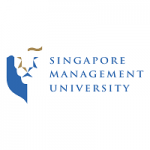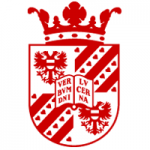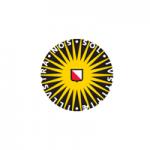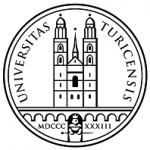项目介绍
Programme Structure and Curriculum
The PhD in Economics programme is designed to give students a structured path from classroom learning to front-line research. They develop the skills necessary to put together rigorous, well-founded arguments and theories of the behaviour of economies, markets, industries, and of the people and institutions that make up these entities. They develop the empirical skillks needed to tease out evidence from data, to falsify or lend support to their novel theories, to the highest standards demanded by economic science.
Many of our students graduate with academic publications in top research journals, and go on to successful careers in industry and academia.
Math Camp
Notes for AY2019/20: Part 1A, Part 1B, Part 2A, Part 2B
These notes will be updated over the summer.
First Year
Our students spend their first year building their foundation in Microeconomics I, Microeconomics II, Macroeconomics I, Macroeconomics II, Econometrics I, Econometrics II with coverage of both theoretical foundations of economics, and the advanced mathematical skills, as well as empirical and computational skills, that they will need in their research.
At the end of the first year, all students are required to sit for, and pass, the PhD Qualifying Examination in Microeconomics, Macroeconomics, and Econometrics.
Second Year
The second year of our programme provides our students with the opportunity to survey the many branches of economics and econometrics, and to delve deeper into their chosen areas of research. The many advanced research topics or ARTs that we offer includes
Advanced Time Series Econometrics
Advanced Topics in Macroeconomics
Computational Macroeconomics
Financial Econometrics
Health Economics
Industrial Organization I
Industrial Organization II
Labour Economics
Mechanism Design I
Mechanism Design II
Nonparametric Econometrics
Monetary Economics
Panel Data Econometrics I
Panel Data Econometrics II
Social Interactions
Spatial Econometrics
Topics in Development Economics
Urban and Regional Economics
Advanced Topics in Mathematical Economics
Microeconometrics
Through the ARTs, the students develop working relationship with our faculty, and start the development of their research ideas. The students also continue with their development of Microeconomics and Macroeconomics, through our international elective where students choose either International Trade or International Macroeconomics.
Third Year
The students move fully into research gear in their third year. At this time, the students put together their research proposals, defend it, and write their first serious research paper – the ‘third year paper’ – which often grows into the first chapter of their dissertations. Students at this stage also start attending seminars and presenting in our workshops. Many of our students also join one or more of our ‘study groups’, where faculty and student meet regularly to discuss new developments and exciting new working papers and publications. Current study groups includes the Econometrics Study Group, the Time Series Econometrics Study Group, the Macro-Labour Study Group, and the International Trade Study Group.
Fourth and Fifth Years
Students at this stage continue with the dissertation work, working on their second and third papers, submitting to journals, presenting at conferences. Some or our more advanced students are able to finish their dissertations in four years, through most require five. The fifth year is also when most of our students enter the job market.
Although developing you into productive researchers is our primary objective, our program also aims to help you develop other skills which you will need to become good communicators, presenters and teachers. Some of our senior students are also given the opportunity and the responsibility of teaching entire undergraduate classes on their own. All of this, of course, culminates in strong, well-rounded graduates, who are competitive for jobs in industry, international organizations, and academic positions the world over — graduates who create new knowledge, new understanding, and who make a difference.
Our formal requirements are:
- A strong Bachelor or Master degreeA bachelor or master degree in Economics (or related fields) with considerable mathematics and statistics, and with evidence of research potential. We do accept students with non-economics background – there are generally students from disciplines with a heavy mathematics component (engineering, physics, math/stats majors)
- Excellent GRE or GMAT scoresApplicants from SMU, National University of Singapore (NUS), and Nanyang Technological University (NTU) with strong economics and technical backgrounds and excellent CGPAs may use their undergraduate/masters transcript as an alternative to the GRE/GMAT. Please check with the Econ PhD Programme Office if in doubt.
- Excellent TOEFL or IELTS scoresStudents from English speaking undergraduate/master programmes do not need to submit TOEFL or IELTS score. However, you should consider whether including proof of English proficiency will help your application.
- Personal and Research StatementDescribe your academic interests, motivation, and objectives for pursuing PhD study, research experience, and any other information that you wish to highlight about yourself. It is your opportunity to convince us of your potential and suitability as a researcher in economics.
- Two Referee Reports
- Curriculum Vitae
- Admission interview
We consider each application on a holistic basis, taking into account all the information presented in your application. We also consider if the applicants research interests and motivations broadly complement the academic interests of our research faculty. To view our faculty’s research areas and areas of expertise, please click here. All shortlisted applicants will be interviewed, and our admission decisions will be based on an assessment of your entire application package.
Regarding mathematics: a PhD program in Economics is mathematically demanding. A strong mathematical background is essential just to get through the first year core courses. An ideal background would include multivariable calculus, real analysis, intermediate level linear algebra, and a strong foundation in probability and statistics.
相关项目推荐
KD博士实时收录全球顶尖院校的博士项目,总有一个项目等着你!






